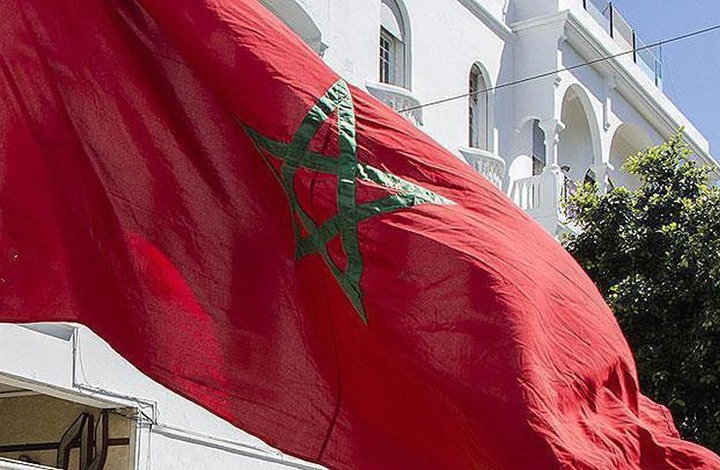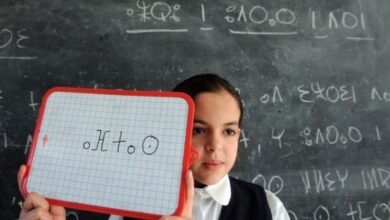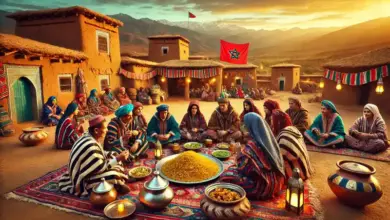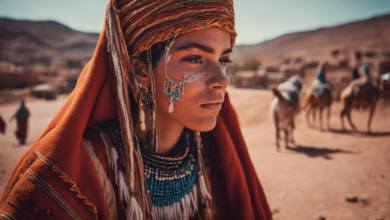The Role of Religion and Governance in the Evolution of Morocco’s Political Landscape Post-Elections

Prepared by the researche :
- Abdul Ghani Amouklach, Faculty of Social and Political Sciences, Universitas Diponegoro, Indonesia
- DRS. YUWANTO, M.SI., PH.D, Doctoral Program of Social Science UNIVERSITAS DIPONEGORO
- DRS. MUHAMMAD ADNAN, M.A. Religion and Politics, Anti-Corruption Policy UNIVERSITAS DIPONEGORO Department of political science, University of Diponegoro, Semarang, Central Java, Indonesia
Democratic Arabic Center
Journal of Political Trends : Twenty-seventh Issue – June 2024
A Periodical International Journal published by the “Democratic Arab Center” Germany – Berlin
:To download the pdf version of the research papers, please visit the following link
Abstract
Morocco’s political landscape is a tapestry woven with threads of religious tradition and modern governance. As a constitutional monarchy that embraces Islam as the state religion, Morocco offers a unique perspective on the interplay between faith and politics. This research paper extends beyond a mere ten-page examination, delving into the intricate ways recent elections have sculpted the nation’s political contours. It scrutinises the historical context, shedding light on the enduring influence of religious institutions and the nuanced religious stances of political parties. The government’s approach to religious affairs, particularly in policymaking and social dynamics, is critically analysed through a qualitative lens. Drawing from a rich pool of academic literature, government reports, and media sources, the paper presents an in-depth analysis that is both comprehensive and insightful. The discussion navigates the potential future trajectories for Morocco’s political landscape, contemplating the complex relationship between religion and governance. The conclusion underscores the imperative for ongoing dialogue and adaptation to steer through the evolving political terrain in Morocco.
1. Introduction
Morocco’s political landscape has significantly evolved, particularly in the wake of the 2011 Arab Spring protests. These protests sparked a movement towards political reform, leading to the adoption of a new constitution that enshrined democratic principles and expanded political participation. The post-2011 era has witnessed Morocco holding more competitive elections and emerging new political parties. Despite these changes, the role of religion, especially Islam, remains a crucial factor influencing political discourse and social dynamics within the country.
This research paper explores the intricate relationship between religion and governance in Morocco’s evolving political landscape, emphasising the developments post-recent elections. It addresses the following key questions:
1.1. Historical Context
The historical relationship between religion and the state has been a defining factor in shaping Morocco’s contemporary political landscape. The institution of the ‘Commander of the Faithful’ and the intertwining of religious and political authority have historically conferred upon the monarchy a dual role that continues to influence governance today (1).
1.2. Religious Institutions
Religious institutions in Morocco, such as the King’s religious authority and the Ministry of Awqaf and Islamic Affairs, play a significant role in policymaking and social dynamics. The King’s status as ‘Amir al-Mu’minin’ (Commander of the Faithful) grants him considerable influence over religious matters. At the same time, the Ministry oversees religious education and practice, impacting various aspects of Moroccan society (2).
1.3. Political Parties and Religion:
Political parties in Morocco employ religion in their platforms and strategies to varying degrees. The success of these strategies in elections influences the prominence of religion in political discourse. Islamist parties, for instance, derive their ideologies from Islamic principles, which shapes their approach to governance and policy (3).
1.4. Governmental Approach
The Moroccan government’s approach to religious affairs involves a delicate balance between upholding Islamic values and navigating the relationship between religion and the state. Challenges include managing religious diversity and ensuring religious freedom while maintaining the state’s Islamic identity.
The paper will utilize a qualitative research methodology, drawing on various sources, including academic literature, government reports, and media sources, to provide a comprehensive analysis of these questions.
2. Material and methods
This research adopts a qualitative methodology to delve into the complexities of Moroccan politics, religion, and society, particularly focusing on the transformations since the post-2011 reforms. The study is grounded in a comprehensive literature review, policy analysis, and media examination to provide a holistic understanding of the subject matter.
2.1. Literature Review
The literature review encompasses an extensive array of sources, including:
Peer-reviewed Academic Journals: Journals such as the Journal of North African Studies and Contemporary Arab Affairs are scrutinised to trace the evolution of Moroccan political structures and the interplay between religion and governance (4).
2.1.1. Books and Research Papers:
Scholarly works offer a deep dive into Moroccan governance’s historical context and societal underpinnings. Notable references include “Religious Authority and Political Power in Morocco: The Interplay of Tradition and Modernity in State-Religion Dynamics” and “Islamic Scholarship and Democratic Governance: Opportunities for Modernization in Morocco’s Religious Institutions.” (5).
2.1.2. Thematic Analysis:
Specific themes such as the monarchy’s religious authority and the impact of the French Protectorate are explored through thematic analysis, drawing from works like “Gender Equality and Personal Status Laws in Morocco: The Paradox of Islamic-Based Legal Provisions and Progressive Reform Initiatives” (Women’s Studies International Forum).
2.2. Policy Analysis
Government reports and policy documents are analysed to discern the official narrative and strategies regarding religious affairs:
2.2.1. Government Reports:
Documents from the Ministry of Awqaf and Islamic Affairs provide insights into the state’s approach to regulating religious practices and promoting moderate Islamic teachings.
2.2.2. Policy Documents:
The constitutional codification of the monarchy’s religious status and the government’s endorsement of moderate Islamic scholarship are examined through policy documents, including the 1962 constitution (6).
2.3. Media Analysis
Media sources offer a contemporary lens on political developments and public discourse:
2.3.1. Moroccan and International News Outlets:
Local and international media articles are analysed to capture the current state of political affairs and societal reactions to religious policies.
2.3.2. Media Framing
The framing of religious and political issues in the media is assessed to understand the construction of social representations and the monarchy’s efforts to maintain resilience (7).
The methodologies employed are designed to ensure a comprehensive and nuanced understanding of Morocco’s interrelations between religion and state. Citations are carefully selected to support the analysis and provide a robust academic foundation for the study.
3. Results and discussion
3.1. Historical Context
3.1.1. Islamic Scholarship
The University of al-Qarawiyyin in Fez stands as a testament to Morocco’s long-standing tradition of Islamic scholarship, serving as a beacon of learning since the 9th century (2).
3.1.2. Religious Knowledge and Authority
Precolonial religious scholars and jurists have profoundly influenced Moroccan identity and law, shaping the nation’s unique religious landscape (3).
Moroccan Islam: Morocco has cultivated a distinct interpretation of Islam over the centuries, reflecting its diverse cultural heritage and historical experiences.
3.1.3. Timeline of Morocco’s History
Various dynasties and religious movements have significantly shaped the country’s history, each leaving an indelible mark on society and governance.
3.2. Monarchy’s Religious Authority
3.2.1. Royal Religious Authority:
The title of ‘Commander of the Faithful’ carries substantial weight in legitimising the monarchy’s rule and intertwining religious authority with political governance (6).
3.2.2. Morocco’s African Religious Influence:
Morocco’s religious influence extends beyond its borders, fostering historical and ongoing ties with sub-Saharan Africa.
3.2.3. Constitutional Codification:
The 1962 constitution formally codified the monarchy’s religious status, cementing its role within the state’s structure (6).
3.3. French Protectorate Impact
3.3.1. French Protectorate Influence:
The French Protectorate era had a profound impact on Moroccan religion and society, introducing secularisation efforts that continue to influence contemporary religious practices (2,8).
3.3.2. Secularization Efforts:
French attempts to secularise Moroccan institutions have left a lasting legacy on the nation’s religious landscape (2,8).
3.4. Post-Independence Religious Legitimacy
3.4.1. Monarchy’s Legitimacy
Post-independence, the monarchy bolstered its legitimacy through claims of genealogical descent and religious authority.
3.4.2. Nationalist and Islamic Regime
The nationalist anti-colonial movement’s association with the monarchy promoted an Islamic regime, intertwining national identity with religious themes.
3.4.3. Social Reforms and Religion
Morocco embarked on social reforms following independence, navigating the interplay between religious doctrines and modern societal needs.
3.4.4. Construction of Social Representations
The monarchy has actively reconstructed social representations to maintain its resilience and adapt to changing times.
3.4.5. King Hassan II and Islam:
King Hassan II played a pivotal role in reasserting Islam’s centrality and the monarchy’s religious legitimacy in the modern era (7).
3.5. Religious Institutions in Morocco
3.5.1. The King’s Religious Role
As ‘Amir al-Mu’minin’, the King of Morocco wields considerable religious authority, influencing public opinion and policy decisions (7).
3.5.2. Ministry of Awqaf and Islamic Affairs
This Ministry oversees religious practices, promoting moderate Islamic teachings and fostering social cohesion (7).
3.5.3. Sufi Brotherhoods
Sufi brotherhoods like the Boutchichiya Brotherhood provide spiritual guidance and social services, contributing to the religious life of many Moroccans (9).
3.5.4. Local Religious Authorities
Local imams and religious scholars play a crucial role in shaping religious practices and social dynamics at the community level (7).
3.5.5. The Rise of Salafi Interpretations
The emergence of Salafi interpretations poses challenges to religious tolerance and individual freedoms, prompting government strategies for integration (10).
3.6. Political Parties and Religion in Morocco
3.6.1. Islamist Parties
The Justice and Development Party (PJD) has been a significant force in Moroccan politics, advocating for political Islam and Islamic democracy (5).
3.6.2. Secular and Center-Right Parties
Parties like the RNI and PAM represent the secular and Centre-right spectrum, acknowledging the role of religion in society while focusing on pragmatic governance (5).
3.6.3. Shifting Dynamics
The interplay between Islamist and secular parties reflects the evolving role of religion in Moroccan political discourse, with the electorate’s preferences shaping the nation’s trajectory (11).
4. Conclusion
This research paper, entitled “The Role of Religion and Governance in the Evolution of Morocco’s Political Landscape Post-Elections,” has explored the intricate relationship between religious traditions and contemporary governance within the Moroccan context. Through a qualitative analysis encompassing a broad spectrum of academic literature, governmental reports, and media narratives, this study has illuminated the profound influence of religion on the political domain, especially in the wake of recent electoral events.
Morocco’s distinctive constitutional monarchy, with Islam as the state religion, provides a unique vantage point from which to observe the interplay between faith and politics. The historical fusion of religious and political authority has been instrumental in molding the nation’s political framework, thereby affecting policy formulation and the dynamics of societal interaction.
Structured into three pivotal sections, the article first delves into the historical backdrop, underscoring the persistent impact of religious entities and the subtle religious postures adopted by political factions. Subsequently, it evaluates the function of various religious institutions—such as the Ministry of Awqaf and Islamic Affairs and the Sufi brotherhoods—and their societal implications. Lastly, it speculates on future directions for Morocco’s political scene, contemplating scenarios ranging from sustained Islamist sway to secularisation and pragmatism and a harmonious equilibrium between religious tenets and democratic ideals.
In conclusion, the paper accentuates the necessity for continuous dialogue and adaptability to traverse the shifting political landscape. It advocates for Morocco to persist in nurturing interfaith dialogue, endorsing moderate Islamic interpretations, and concentrating on socio-economic advancement, all while honouring religious convictions. Balancing tradition with modernity is a pivotal factor for ensuring enduring stability and fostering progress in the forthcoming years.
In essence, this study offers a perceptive examination of how Morocco’s political terrain is sculpted by the complex nexus between religion and governance. It proposes strategies to uphold a concordant balance that venerates the nation’s rich religious legacy while accommodating the imperatives of modern governance.
Compliance with ethical standards
Disclosure of conflict of interest: No conflict of interest will be disclosed.
References
- Tozy M. Diaspora politics and religious diplomacy in Turkey and Morocco. J Southeast Eur Black Sea. 2023;23(2):317–37.
- Schiavi FS. Assessing Morocco’s Renewed Political Landscape. ISPI MENA Centre; 2021.
- Balgley D, Rignall K. Land Tenure in Morocco: Colonial Legacies, Contemporary Struggles. In: Chitonge H, Harvey R, editors. Land Tenure Challenges in Africa: Confronting the Land Governance Deficit. Cham: Springer International Publishing; 2021. p. 183–202.
- Kaya A, Drhimeur A. Diaspora politics and religious diplomacy in Turkey and Morocco. J Southeast Eur Black Sea. 2023;23(2):317–37.
- Macías-Amoretti JA. Political Islam in Morocco: From Islamic Ethics to Political Power. In: Izquierdo Brichs F, Etherington J, Feliu L, editors. Political Islam in a Time of Revolt. Cham: Springer International Publishing; 2017. p. 227–48.
- Bennani-Chraïbi M. The Moroccan political partisan landscape: a polarized microcosm? Rev française Sci Polit. 2013;63:1163–92.
- Sparkes JI. Morocco as a Hub of Globalised Traditional Islam. Religions. 2022;13(5).
- MENA.C. The Geopolitics Of Morocco. ISPI MENA Centre; 2023.
- Wainscott AM. Religious Regulation as Foreign Policy: Morocco’s Islamic Diplomacy in West Africa. Polit Relig. 2018;11(1):1–26.
- Wafa ML, Heryadi D, Akim A, Setiawati SM. Indonesian Religious Cooperation with Morocco: A Case of Religious Diplomacy? J Church State. 2024;66(2):87–98.
- Nejjar S. Morocco’s political use of Islam and its religious diplomacy. Euromesco policy Br. 2018;86(86):1–7.




